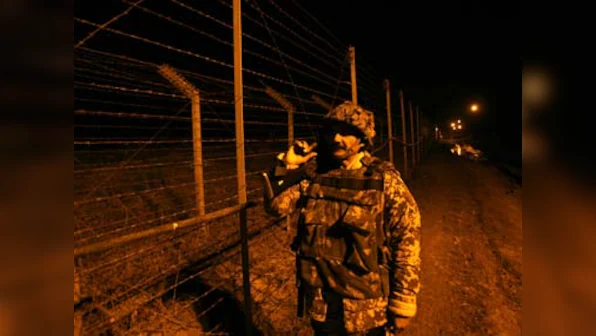Fear of Visa Cancellation Grips Foreign Students in US Over Palestine Support
The United States, long considered a beacon of academic freedom and opportunity, is witnessing a growing wave of anxiety among international students, particularly those who have expressed support for Palestine. In recent months, reports of visa cancellations targeting foreign students involved in pro-Palestinian activism have sparked widespread fear, raising concerns about freedom of speech, academic liberty, and the broader implications for global education. The Trump administration’s aggressive immigration policies, coupled with the use of artificial intelligence to monitor social media activity, have created a chilling effect on campuses across the country, leaving students uncertain about their future in the U.S.
The Crackdown on Pro-Palestinian Activism
Since the escalation of the Israel-Palestine conflict following Hamas’s October 7, 2023, attack, which killed 1,200 people and took over 250 hostages, pro-Palestinian protests have surged on U.S. college campuses. Students have organized rallies, encampments, and divestment campaigns, calling for an end to Israel’s military actions in Gaza, where over 48,000 Palestinians have been killed, according to Gaza authorities. These demonstrations, while largely peaceful, have been met with increasing scrutiny by the Trump administration, which has framed them as antisemitic or supportive of terrorism.
In January 2025, President Donald Trump signed an executive order aimed at combating antisemitism on campuses, explicitly threatening to cancel visas and deport non-citizen students deemed “Hamas sympathizers.” Secretary of State Marco Rubio has been vocal about the policy, stating that the State Department has revoked over 300 student visas, with daily actions targeting those involved in pro-Palestinian activism. By April 2025, estimates suggest that nearly 1,500 students across more than 120 institutions have had their visas revoked or legal status terminated, with some reports indicating the number could be as high as 4,700.
High-profile cases, such as that of Mahmoud Khalil, a Palestinian graduate student at Columbia University, and Rümeysa Öztürk, a Turkish doctoral student at Tufts University, have drawn significant attention. Khalil, a green card holder, was detained by Immigration and Customs Enforcement (ICE) in March 2025, accused of being a threat to U.S. foreign policy due to his role as a negotiator in campus protests. Öztürk, arrested by masked agents in broad daylight, faced allegations of supporting Hamas based on an op-ed she co-authored calling for her university to acknowledge the “Palestinian genocide.” These cases, among others, highlight the administration’s use of the Immigration and Nationality Act of 1952, which allows the deportation of non-citizens whose presence is deemed to have “potentially serious adverse foreign policy consequences.”
The Role of Artificial Intelligence
A particularly controversial aspect of this crackdown is the State Department’s use of AI to monitor the social media accounts of tens of thousands of student visa holders. Launched as part of Rubio’s “Catch and Revoke” program, this AI-driven initiative scans for content perceived as supportive of Hamas or critical of U.S. foreign policy. News reports of past demonstrations and lawsuits filed by Jewish students alleging antisemitism are also cross-referenced to identify targets.
Human rights advocates have raised alarms about the potential for errors and misidentifications in this surveillance system. The American-Arab Anti-Discrimination Committee has warned that the program represents an “alarming erosion of constitutionally protected free speech and privacy rights.” The Foundation for Individual Rights and Expression (FIRE) argues that AI tools are ill-equipped to navigate the nuances of the Israeli-Palestinian conflict, risking the misinterpretation of legitimate political expression. For instance, posts expressing solidarity with Palestinian civilians or criticizing Israel’s actions in Gaza could be flagged as support for terrorism, even if they contain no explicit endorsement of Hamas.
Impact on International Students
The fear of visa revocation has profoundly altered the daily lives of international students, particularly those from Muslim-majority or Arab countries. Many have taken drastic measures to protect themselves, including deactivating social media accounts, avoiding protests, and limiting discussions about Palestine in academic settings. A Georgetown University junior, a dual Canadian-Iranian national, deactivated her X account to safeguard her citizenship application, stating, “With the way I see everyone’s social media being scrutinized, it’s not worth the risk.” Others, like a West Bank-born graduate student, continue to speak out despite the risks, driven by the urgency of the humanitarian crisis in Gaza.
The lack of transparency in the visa revocation process exacerbates this fear. In many cases, students receive vague notifications citing “additional information” or “inconsistent conduct with visa classification” without specific reasons. Universities, often informed of revocations through the Student and Exchange Visitor Information System (SEVIS), are left scrambling to support affected students, many of whom face immediate deportation proceedings. At the University of California, Davis, Chancellor Gary May noted that seven students and five recent graduates had their visas canceled without explanation, describing the situation as “distressing” for the campus community.
For students like Chinmay Deore, a 21-year-old Indian student at Harvard, the sudden termination of their immigration status is devastating. Deore’s dreams of completing his education were shattered when his visa was revoked, leaving him facing deportation and an uncertain future. The emotional toll is immense, with students reporting feelings of betrayal after sacrificing personal comforts to pursue education in the U.S.
Legal and Ethical Concerns
Legal experts and advocacy groups argue that the visa cancellations violate constitutional protections. The First Amendment guarantees freedom of speech and assembly to all individuals in the U.S., regardless of citizenship status. The American Civil Liberties Union (ACLU) has condemned the crackdown as a “blatant threat” to academic freedom, likening it to McCarthy-era tactics. Carrie DeCell, a senior staff attorney at the Knight First Amendment Institute, asserts that deporting non-citizens based on political speech is unconstitutional.
However, the federal government’s broad authority over immigration complicates legal challenges. The Supreme Court has historically upheld expansive presidential powers under immigration law, as seen in the 2018 decision upholding Trump’s travel ban on Muslim-majority countries. Some conservative scholars, like Ilya Shapiro of the Manhattan Institute, argue that visa revocations are a legitimate enforcement of immigration regulations, particularly for those perceived to support groups designated as terrorist organizations by the U.S.
Ethically, the policy raises questions about the role of universities as spaces for open discourse. Critics argue that the administration’s actions pressure institutions to police student activism, undermining their mission to foster critical thinking. The capitulation of elite universities like Harvard, which severed ties with Palestinian institutions under federal pressure, has drawn particular scrutiny.
Broader Implications
The visa crackdown is part of a larger immigration agenda that includes pausing green card processing for refugees and issuing directives against transgender athletes. Immigration attorneys view it as a deliberate signal about who is unwelcome in the U.S., particularly nonwhite students from marginalized backgrounds. The policy risks deterring future international students, potentially diminishing the U.S.’s status as a global education hub.
On campuses, the crackdown has polarized communities. Some students support the measures, arguing that advocacy for Hamas crosses a line into supporting terrorism. Others, including Jewish pro-Palestinian groups like IfNotNow, denounce the policy as exploiting fears of antisemitism to suppress dissent. The absence of parallel efforts to address Islamophobia, despite documented incidents during protests, further fuels accusations of bias.
Looking Ahead
As legal battles unfold, the fate of affected students remains uncertain. Federal judges have issued temporary stays in some cases, such as Khalil’s, but the broader policy shows no signs of abating. Advocacy groups are mobilizing, with organizations like the ADC and ACLU urging universities to resist federal pressure and protect their students. Student-led movements, such as Students for Justice in Palestine, continue to organize, though with heightened caution.
For international students, the U.S. is no longer the safe haven it once appeared to be. The fear of visa cancellation has cast a long shadow over their academic aspirations, forcing them to navigate a precarious balance between activism and self-preservation. As Maria Alejandra Romero Cuesta, a Colombian student at George Mason University, put it, “I’m afraid to walk the streets, unless it’s at a rally.” Her resolve reflects the resilience of many, but also the high stakes of speaking out in an increasingly hostile environment.
The international community, too, is watching closely. The erosion of free speech protections in the U.S. could have ripple effects, emboldening other nations to crack down on dissent under the guise of national security. For now, the struggle for academic freedom and the right to protest continues, with international students at the forefront of a battle that tests the core values of American democracy.
You Might Also Like :
NIT Srinagar to Host Rang-e-Chinar 2025 Cultural Fest on 2nd–3rd May
Half a Million U.S.-Funded Weapons Unaccounted for After Taliban Takeover
Bangladesh Seeks Apology and $4.32 Billion Compensation from Pakistan






